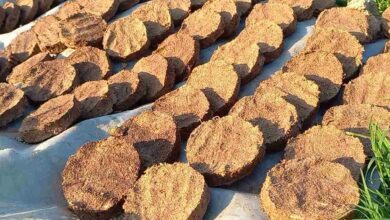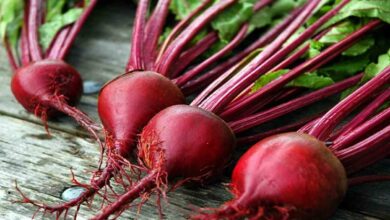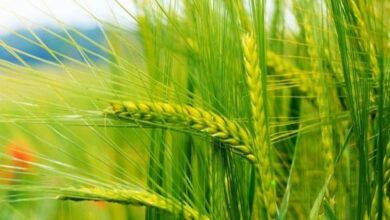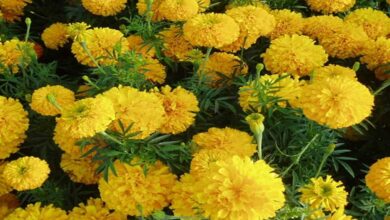Success Story: Karnataka farmer earns millions with zero-budget integrated farming
Success Story: With his commitment to sustainable agriculture, Malleshappa Gulappa Biserotti, a farmer from the Hiregunjal hamlet in Dharwad, Karnataka, is having a big influence. Malleshappa, 53, has been a farmer for more than half of his life, with the last 20 years being devoted to natural farming on a zero-budget basis. With the help of traditional knowledge, he has turned his 20-acre farm into a flourishing illustration of ecological harmony, making him a role model for farmers and environmentalists alike.
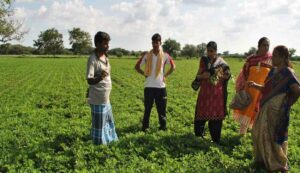
A Lowly Start
Malleshappa started out in zero-budget farming under difficult conditions. His community had a terrible drought twenty years ago, making it difficult for farmers to get even drinking water. Malleshappa’s future was dubious since his arid land was unproductive and barren. An agricultural official showed him the advantages of using earthworms to restore soil health at this trying time. Malleshappa discovered Subhash Palekar’s natural farming philosophy at around the same period, especially the use of organic fertilizer Jeevamrutha.
But Jeevamrutha needed a lot of water, and water was already in short supply. Malleshappa started studying cow dung, a key component of traditional agricultural methods, after considering how his forefathers managed to cultivate with little water. He created Ghana Jeevamrutham, an organic fertilizer enhanced with earthworm larvae, as a result of this study. In addition to using less water, this creative method greatly increased soil richness.
Constructing a Sustainable and Diverse Farm
Malleshappa’s farm serves as an example of integrated farming today. He still focuses on spice crops like mustard, carom, and dried chili, but he also grows groundnuts, jowar (sorghum), wheat, and gram pulse as field crops. Among his horticultural endeavors are neem, curry leaves, areca, custard apple, guava, and amla. He also breeds two oxen, one bull, and nine Desi cows, which serve as the cornerstone of his agricultural concept.
Malleshappa highlights that “cows are vital to the land and life itself; agriculture cannot exist without them.” He ensures a self-sufficient agricultural ecology by using these animals to produce compost, vermicompost, and organic fertilizers. His use of earthworm larvae and Ganajeevamrutha improves soil health, creates high-quality, nutrient-rich crops, and does away with the need for commercial fertilizers.
Overcoming Obstacles with Innovation
Water shortage has presented difficulties, but Malleshappa’s perseverance has paid off. Every year, he makes around 5,475 kg of solid Jeevamrutha and uses the seeds from his 17 neem plants to make 200 kg of neem cake. Neem leaves are also used in the process of making vermicompost. In addition to increasing the production of his farm, his dedication to using locally accessible resources has served as an example for other farmers in his area.
Depending on rainfall, Malleshappa’s yearly income might range from Rs 3–4 lakhs during water-scarce years to Rs 7 lakhs during rainfall-rich years. His sustainable farming methods have made sure that his farm stays lucrative and productive even in hard times.
Prospects for the Future
Malleshappa has bigger plans than only his property. He aspires to create a chemical-free, sustainable environment for coming generations. He wants to restore the earth’s equilibrium while giving society access to wholesome, chemical-free food. He is certain that in order to maintain ecological balance, contemporary agriculture has to get back in touch with its roots.
He asserts that “we must focus on the knowledge passed down to us by our ancestors and prioritize the quality of the food we make for our customers.” “Farming should preserve the environment and provide livelihoods for future generations.”
Accolades and Accomplishments
Malleshappa has received recognition for his contributions. He received the Dada Saheb Phalke International Film Festival’s Dhari Mitr Award in 2021. He received the second award, which is worth Rs 3 lakhs, from Bollywood actress Lara Dutta and Col. Tushar Joshi in appreciation of his efforts in sustainable agriculture.
A Note to Other Farmers
Malleshappa’s advice to farmers is straightforward: have faith in your gut feelings and ancestors’ knowledge. In order to produce high-quality food and protect the environment, he urges farmers to embrace traditional, sustainable methods. He asserts that farmers are self-aware. “A better future for agriculture and the planet can be ensured by concentrating on sustainability and ancestral knowledge.”
The tale of Malleshappa Gulappa Biserotti is one of tenacity, ingenuity, and unshakable trust in the capacity of nature to support life. He has turned his arid land into a prosperous, sustainable farm by resurrecting traditional agricultural methods and modifying them to meet contemporary demands. His story inspires farmers and environmentalists by demonstrating that, with hard work and reverence for the natural world, it is possible to grow not just food but also a brighter future for all.


